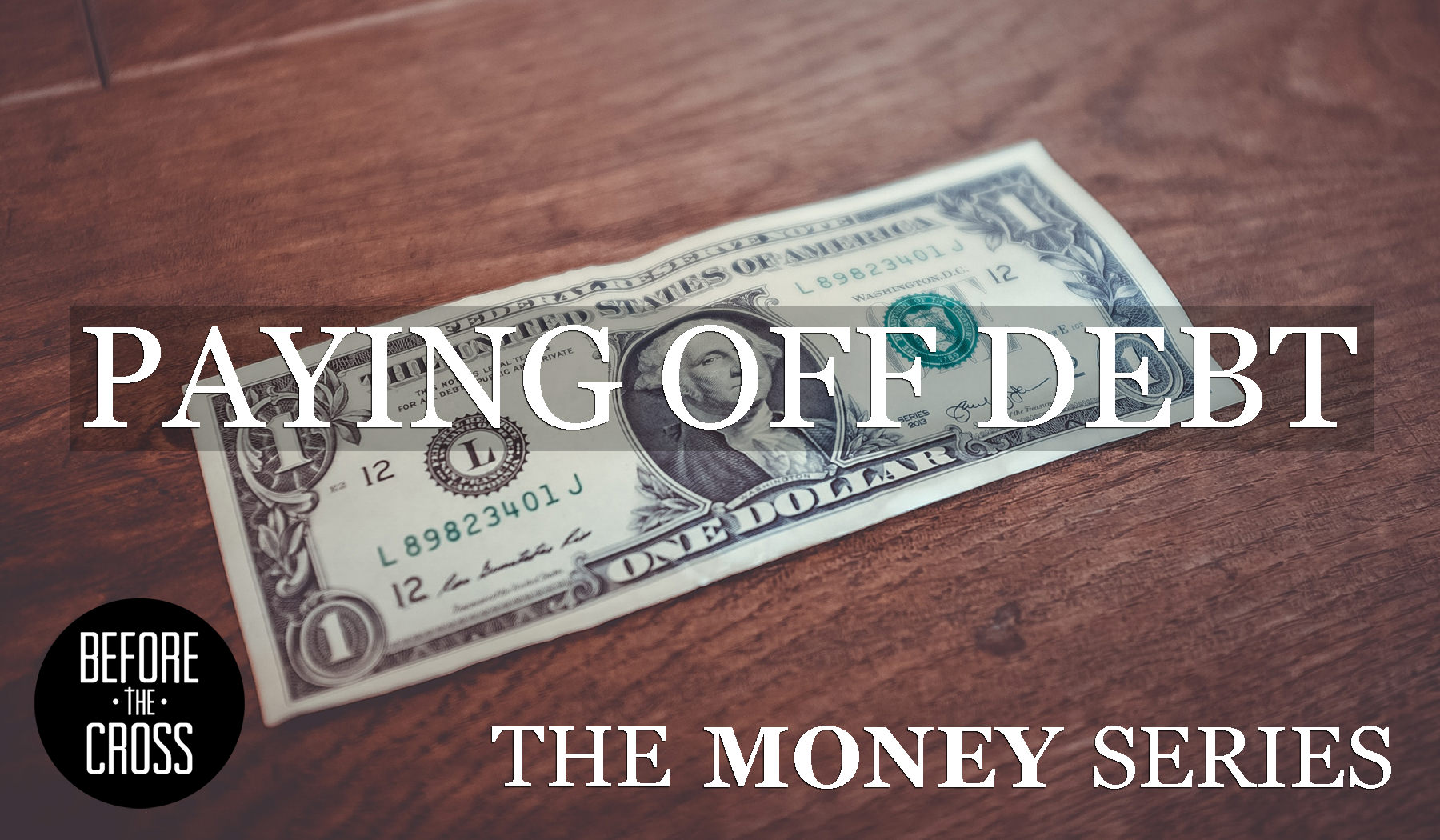Before the Cross: The Money Series預覽


Day 5: Paying Off Debt
This was the stumbling block for me personally that led to bankruptcy. In my story, if you remember, I racked up so much debt in order to “build my credit,” it broke me and crushed me all the way to the bottom.
Everywhere you look, there’s “credit.” The infamous word that tickles our ears and tempts us to spend money that we don’t really have. If you also remember when we talked about budgeting, one of the main rules of a budget is to not spend what you don’t have.
Then enters credit and debt. It whispers, “It’s ok, even though you don’t have this money. We’ll give you money, and you can just pay us later.” It’s a frustrating battle to know what debt really is and what we need to do with it. Luckily, there are answers.
Is It Bad To Be In Debt?
Here’s the reality for the follower of Jesus and I’m telling you ahead of time, this is going to be hard to hear. When we go into debt, we are telling God that He is an insufficient provider.
We are saying we want it now, can’t wait, and that He isn’t enough. Plus, it would also point out the fact that most of us don’t have a plan or a budget, which is another reason why we find ourselves in debt.
People want to borrow trouble from tomorrow because they can’t see how to take care of things today.
When I talk about debt, I’m talking about everything including cars and students loans, with the only exception being a house (because in general, housing appreciates in value, meaning we can sell it and pay it off without remaining in debt).
So Then, How Do I Pay Off Debt?
There are two main ways to pay off debt: the debt snowball and the debt avalanche.
The debt snowball means that all things being mostly equal, pay off the lowest balance first. “Mostly” equal means within $1,000 balance and 5% of interest. For example, item A with a balance of $750 and interest rate of 12% and item B with a balance of $1750 and interest rate of 9% are equal. Pay off the $750 first.
When the first item is paid off, move that monthly payment into the next lowest balance and now pay that one off, and go from there. A “win,” paying off a card or loan, gives us encouragement and incentive to keep going so we will want another “win” as quickly as possible.
The other method (debt avalanche) means to pay off the highest interest balance first, and continue paying your debt down until it’s all gone.
Either way, the goal is to be completely out of debt as quickly as God allows it. Because God IS a sufficient provider.
Remember, one of the primary goals of making a budget is to define how much is enough. By defining how much is enough, it allows us to have plenty to give to those who don’t have enough and to increase our other giving budget lines. This helps paint a picture to the world that God IS a sufficient provider as He provides through His church (followers of Jesus).
What We Do
After I filed bankruptcy, I still had to pay my car loan and all student loans. Before we got married, debt was high up in my budget plan so I would see the lines very quickly each month. I started aggressively paying down the debt. When we got married, we both had debt, so for the first 18 months of our marriage, we did everything we could do to pay this down.
We were convicted that we were treating our finances as if God was an insufficient provider, so we wanted to get rid of 100% of our debt immediately. We also had plans for my wife to stay home if/when we started having kids and realized this was never going to happen if we still had debt. We said no to a lot of events and entertainment that cost money. We tightened our remaining budget lines to spend on a “need” basis. And after 18 months, all of our debt was paid off!
The opportunities afforded to us because of not having any debt are too many to list here, but it opens the door for so many things that God puts right in front of you. You’re able to say YES much more often than no because you’re financially available. Plus we wouldn’t trade the peace of mind and the fact of being obedient for anything.
It’s amazing how difficult it felt to “slay the debt monster,” and not only that, but to keep him down at all times. There have been numerous times we’ve been tempted to utilize debt, and we’ve remembered how hard (but worth it) those first 18 months were, so we say no. Most of all, as Christians there’s zero reason for us to be in debt, so it’s never going to be a thing for us.
We DO use credit cards (because we pay these off 100% every week or so) for all of our spending. We figure that if we manage God’s money well, there’s no reason not to take advantage of bonuses and offers if we were already going to spend that money anyway. However, it’s a slippery slope for many, and if you’re just getting out of debt, I would not suggest it. If you can’t control your spending, don’t do it. After some time, or if you’re already out of debt, discern if you’re able to use credit cards wisely to earn rewards and steward them well.
